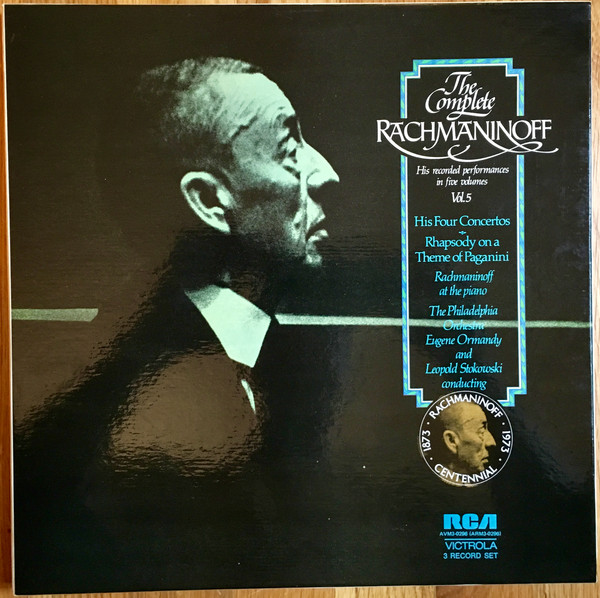I’m writing this on the day of the great composer’s 150th birthday, and this was published exactly 50 years ago. The recordings were made by RCA Victor between 1920 and 1942. Different conductors, but each one with Rachmaninoff himself at the piano.
Rachmaninoff left his native country of Russia soon after the Revolution, ending up in the US in 1919. He was interested in the new recording techniques, and signed a contract with the Edison Records, with an unwilling Thomas Edison. The legendary inventor was by that time already well in his seventies, never musically very sophisticated and a bit deaf. And not interested. His staff convinced him to do it, but it was never a real love.
A year later Rachmaninoff signed at the Victor Talking Machine Company (the one with the famous dog in the logo). It is these recordings that are part of this box. They are mono, but of a surprisingly good quality. So good that they make us ask a very important question: is a composer the best interpreter of his own work? That might seem like a simple question, of course, if s/he writes it, s/he should be able to perform it in the right way?
But consider this: what if Bach suddenly jumped out of the Tardis to show us his version of Toccata and & Fugue. And it turns out to be completely different. Are we changing all performance history? Are we suddenly changing our memories of the piece? Over the many years since the creation of the piece, many people have played it, put their meaning into the notes. This gives the piece an extra level of meaning. It is like restoring an old building. Are we suddenly putting the Tower of Pisa in a straight position?
Because this is a mono recording, I used my old record player for this one btw. I had to take it down from the attic, put a new stylus on it, but it works now. I cannot move in the house because the footfalls will skip the record.
